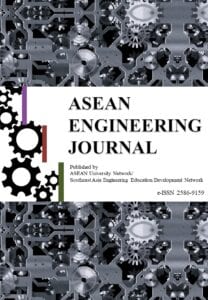LEVERAGING ON NEIGHBOUR INFORMATION FOR OPTIMIZING NETWORK SELECTION
DOI:
https://doi.org/10.11113/aej.v5.15456Abstract
Current operating systems rely on Received Signal Strength (RSSI) to choose which network to connect. However, RSSI is not a good measure of actual network performance and requires the interfaces to be turned on, which can significantly drain the battery of the mobile node. This work revisits how network discovery is performed in a multi-radio, mobile environment. The current method of basing decisions on physical-layer characteristics cannot adequately capture network service parameters. Going beyond radio properties allows users to make better choices as to which is the "best'' network and Point of Attachment to connect to. In this work we extend MOBIX, a system for managing MOBility using Information eXchange, which allows nodes to exchange information in a peer-to-peer manner in addition to leveraging on a centralized server. We performed simulations to study the performance of MOBIX with and without the map server and show that our enhanced system strikes a balance of providing a scalable, updated network performance information in densely populated areas and relying on a network server in less urbanized areas with lower number of nodes.
















